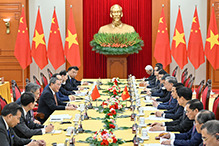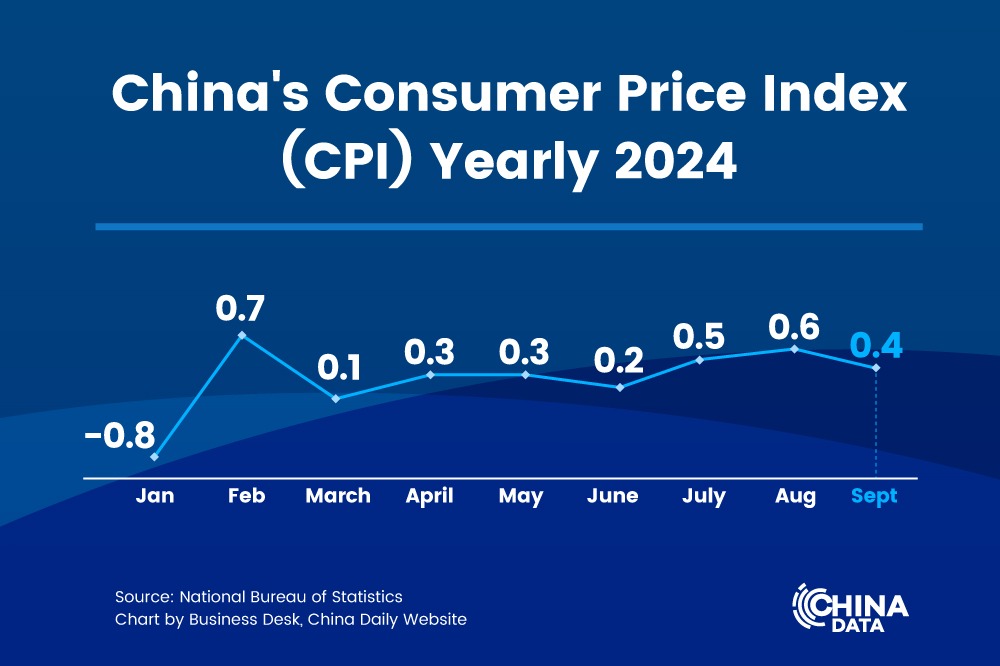Deloitte senior exec: Nation 'too attractive to ignore'


China is a market that is "too big and too attractive to ignore" for multinational companies, said David Hill, CEO of Deloitte Asia Pacific.
"One of the things that people talk about is a decoupling with China. That is a false notion. As the world's second-largest economy and the number one trading partner of more than 120 countries, China remains fundamentally connected to the rest of the world," Hill said.
He made the remarks in an interview during the MNC Future Summit hosted by Deloitte in Shanghai late last month.
As the first of its kind inaugurated by the international professional services provider, the summit attracted over 200 attendees, most of whom were MNC senior executives and industry experts.
According to a consensus reached during the summit, China's advancements in infrastructure, technology and sector-specific innovations are instrumental in fostering the growth of MNCs, both within China and the rest of the world.
Although foreign direct investment in China contracted by 8 percent last year, partly because of a supply chain concentration risk after the COVID-19 pandemic, FDI declined 18 percent on average globally last year due to the interest rate hikes by the US Federal Reserve, said Hill.
More important, China's FDI reached $189 billion in 2022, a record high, according to the United Nations Conference on Trade and Development. Although it fell last year, it was still "very high" by China standards, he said.
In addition, about 20 to 30 percent of the income of multinational companies is generated from China every year.
A large part of this income is reinvested in China for expansion, but not included in the calculation of FDI, said Li Jiaming, chief strategy officer of Deloitte Consulting for China.
While MNCs have traditionally made more investments in the country's infrastructure, mergers and acquisitions, operations, and talent are their focus areas now, said Li.
MNCs' contribution to China's annual GDP reached 5 percent during the 1990s, but this has dropped to 1 to 2 percent currently. This is closely related to the rise of Chinese consumers, Hill said.
While the middle-income population has already reached 400 million in China, the largest in the world, this will further go up to 800 million in the next decade.
This indicates that consumption has overtaken investment to become the most important economic driver in China, as proven by consumption's 82.5 percent contribution to the country's GDP last year. This is one major reason why China's economy is less dependent on FDI now, he added.
"I would be optimistic about the long-term trend and what drives FDI in China," said Hill.
According to Hill, there are still many good reasons for MNCs to enter the Chinese market, which is cost-competitive, sophisticated, innovative and fast-moving.
In terms of specific areas implying great growth potential, Hill believes it will be the green economy, which will be a major engine for global economic growth in future and which has already seen some serious planning in China.
About 40 percent of China's growth last year came from emerging green technology. Meanwhile, 40 percent of the world's hydrogen electrolyzers, 60 percent of the world's wind turbines, 64 percent of the world's electric vehicles and 80 percent of the world's solar panels are manufactured in China.
The outbound reach made by Chinese companies is also worth noting. Outbound investment from nonfinancial Chinese companies to the rest of the world grew by over 11 percent last year, according to the Ministry of Commerce.
"What we are seeing now is not just China for China on the inbound. We are seeing China for global," said Hill.




































